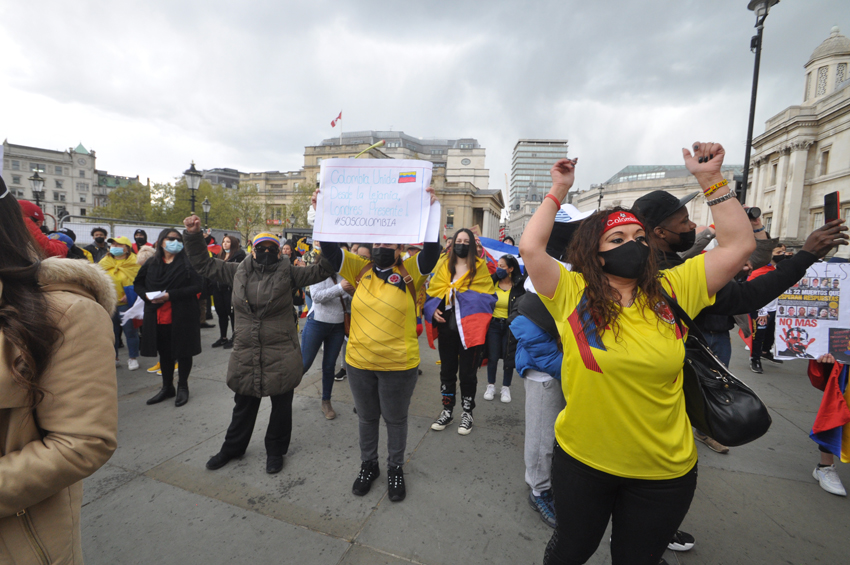THE TRADE Union Advisory Committee (TUAC) adopted a resolution on the dire situation in Colombia, condemning the violence against trade unionists and calling on the Organisation for Economic Co-operation and Development (OECD) to take action.
The recent violent crackdown by the Colombian authorities against the mass opposition and demonstrations follows reports by the Colombian trade unions of a resurgence of anti-trade union violence, murders and threats against trade unionists.
Colombia officially became a member of the OECD in April 2020, following a long, complicated and controversial accession process stretching back to 2013. Now, more than a year into its OECD membership, Colombia remains one of the most dangerous countries for trade unionists and workers with serious concerns regarding the rule of law, and access to and efficiency of the judiciary.
By joining the OECD, Colombia has committed itself to the fundamental values of the organisation. These include a functioning market economy, but also, and no less important, the rule of law, democracy with a well-functioning and independent judiciary, and full observance of human rights, including core labour standards.
At the Plenary, the TUAC condemned the constant attacks on civil society and trade union activists and the brutal repression against legitimate civil protests against structural reforms in the past months. In its resolution, the TUAC furthermore called on the Government of Colombia to take steps to ensure implementation of the OECD ‘post-accession monitoring framework’ and called on the OECD to take concrete steps to ensure the above expectations are met.
Meanwhile, Public Services International and LabourStart have launched a campaign calling for the Colombian government to cease state violence, negotiate with the National Strike Committee, and accept the requests of human rights commissions.
The National Union of Public and General Employees (NUPGE) has joined the call on the Colombian government to stop the violence against demonstrators and to engage in negotiations with the National Strike Committee.
The general strike began on April 28 in response to a tax reform bill, which sought to increase taxes on basic foodstuffs and essential services like water and electricity, and to other social policies that threaten to widen inequality. There has been widespread participation from the Colombian population, including trade unionists, social organisations, and youth.
The demonstrations have been met with violent repression from state agencies, including the National Police, and the military.
In May, Larry Brown, President of NUPGE, wrote a letter to the President of Colombia to condemn the violence against protesters and to voice solidarity with the people’s movement and their demands.
‘NUPGE strongly condemns the brutal repression of the Colombian people who have exercised their right to freedom of expression against the tax reform bill and the anti-social policies of your government,’ wrote Brown. ‘We support the continuity of the strike and peaceful mobilisations in line with the decisions of the National Strike Committee (Comité Nacional del Paro) and the multiple social organisations that accompany it.’
And the movement is bringing about change. The tax reform bill was withdrawn, the finance minister resigned, and a health care privatisation bill was abandoned. But there is still much to be done.
- A month after protests began in Colombia, the national strike committee is calling for fresh demonstrations after the government refused to sign a preliminary agreement guaranteeing peaceful protests.
The national strike committee, made up of social, ethnic, community and union organisations (many of which are affiliated to IndustriALL), has supported the campaign since the beginning.
The committee is now calling on the government to sign a proposal to ensure that the protests are demilitarised and that demonstrators’ human rights are respected. The committee has condemned the recent rise in police violence, especially in the city of Cali. It has also called for the repeal of the government’s militarisation decree adopted on 28 May, setting out instructions for maintaining and re-establishing public order.
The committee has so far recorded 70 deaths from police violence during the protests (14 of which occurred on 28 May in Cali), 51 eye injuries, 1,502 arbitrary arrests and 87 incidents of gender-based violence.
